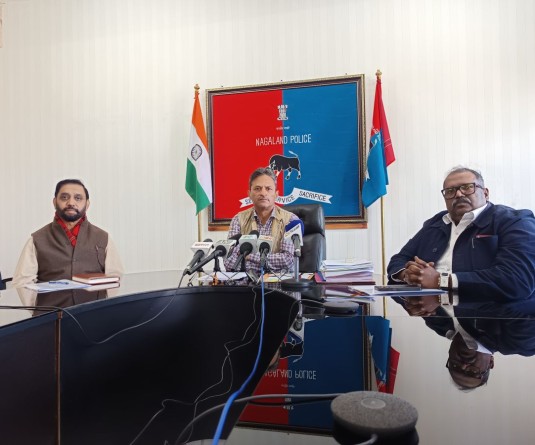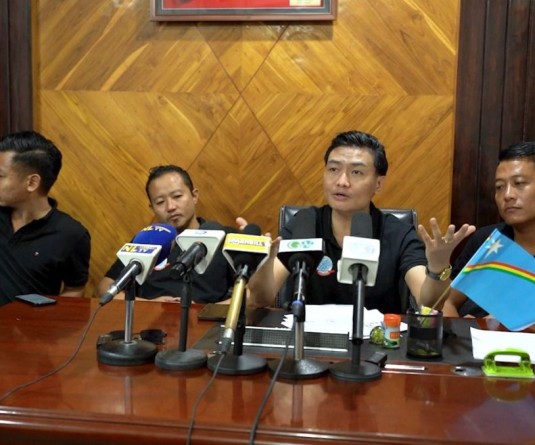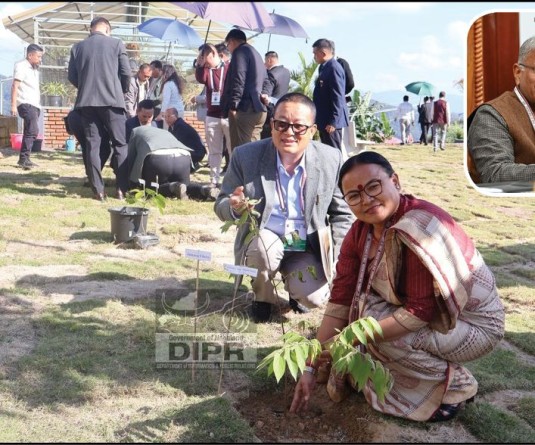
DIMAPUR, JULY 3 (MExN): With an aim to connect urban based students to local food and farming systems, the North East Network (NEN) conducted a Summer Farm School (SFS) with the theme ‘Bridging the Farm to Plate Gap’ at Chizami Village, Phek from June 27 to July 2.
The main objective of the Summer Farm School was to connect urban-based students with local food and farming systems through an experiential learning module. It also aimed at bridging the traditional knowledge gap on sustainable food systems and make students understand the process from food production to consumption.
One of the participants of the summer school, Hazel Odyuo stated that the experience was “amazing.”
“I realised the beauty of nature and the importance of everything around us in Chizami. It was my first time experience transplanting paddy in the terrace fields. A visit to the jhum fields is a walk to remember,” stated Odyuo, a student of Livingstone Foundation Higher Secondary School, Dimapur.
Another participant, Vizotuonuo Kelelie, a student of Mount Hermon Higher Secondary School, Kohima stated that “the best thing during the camp was the quiet time, from which we learnt that we should give time to ourselves, listen and know what nature wants from us.”
“Because of this summer camp, I am a lot more inspired by nature. Now I have become more interested in exploring nature and its benefits,” noted Kuthovezo Medeo, a student from Baptist High, Kohima.
At the valedictory programme on July 2, Vechulou-u Kanuo, Executive Director, Chakhesang Women Welfare Society (CWWS) was the guest speaker.
Speaking to the participants she emphasised on the importance of growing one’s own food that is free from chemicals in order to stay healthy and live long.
On this note, she shared a Japanese quote that went: “Chemical is war, organic is peace.” Kanuo called on the students to recognise, respect and love the farmers for their contribution to food production. “Unless we have farmers to grow food and rear livestock, we, the consumers even if we have enough money will not sustain,” she added.
Seno Tsuhah from the North East Network in her concluding remarks motivated the students to translate their learning into action back in their homes and schools. She expressed happiness to hear that 50% of the students have pledged to start a backyard garden in their homes. Others pledged to decrease the buying and consumption of junk food, spread awareness on harmful effects of chemical use and promote organic farming, start a mini bee farm, document the edible plants in their areas and spread awareness on its conservation, amongst others.
Meanwhile students of the SFS presented their experiences through the mediums of skit, music, poetry reading, poster exhibition and speech. Participation certificates were given away by Vechulou-u Kanuo, Andrew Ahoto, Chairman, LFHSS; Zulhipe Chirhah and Mhetshelo T Kapfo, Sub-Inspector of Schools.
It may be mentioned that the NEN organises the Summer Farm School annually and this is its 3rd year. The six day school covered topics of ecology and food chain, pollinators, jhum farming, terrace rice farming, homestead gardening, biodiversity walk and foraging wild edible plants, organic food production and consumption, community living and culture.
Twenty two high school students from 6 educational institutions in Kohima and Dimapur participated in the SFS 2018. The resource persons included custodian farmers and community knowledge holders from Chizami—Zulhipe Chirhah, Khenemvu L Mero, Mesilhi-u Akami, Dikhwetsou Wezah, Tasetshulou-u Kapfo and Kezukha-u Wezah. The resource team also included Dr. Samhita Barooah, freelance researcher and writer; Er. Khuvoi Vese, NBHM; Dr. Esther Longkumer, ACTO Soil, KVK-ICAR; Wetshete Thopi, Lecturer; Kilentola Jamir, teacher and volunteer IoFC; and NEN members.






